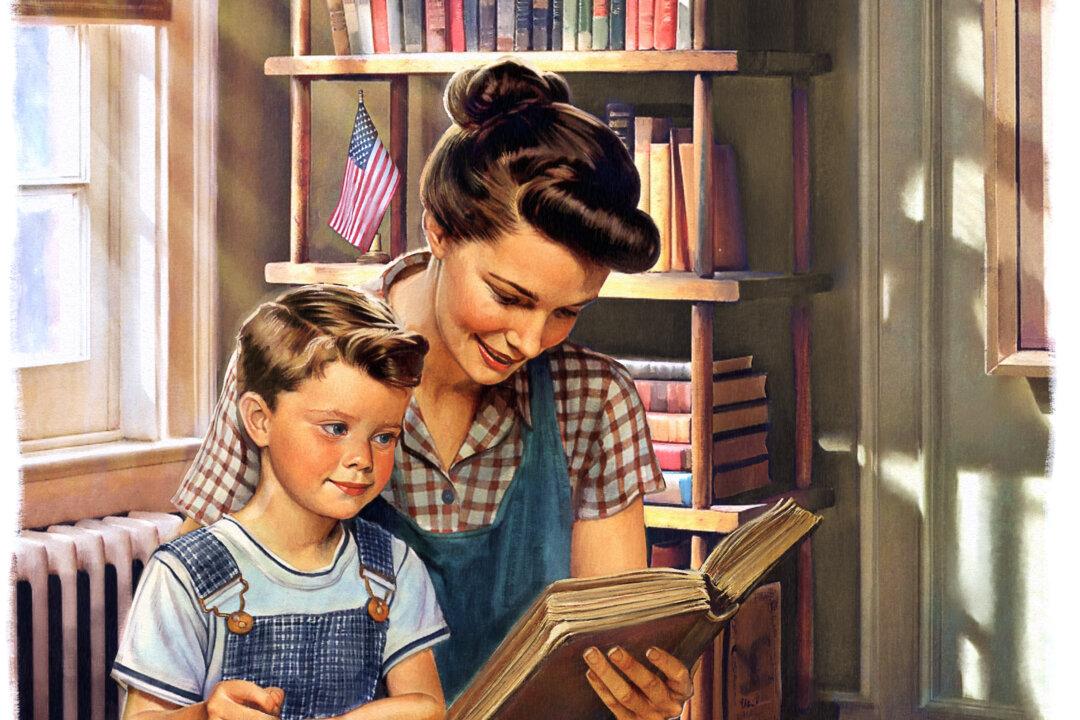During the Colonial era, education, especially literacy, was a near-obsession among the European newcomers to America.
There was no government supervision of schools—indeed, there were no official government schools at all. While the well-to-do might hire tutors for their children or enroll them in the few colleges and academies then available, most children acquired the basics of reading, writing, and ciphering at home. They began by learning their ABCs from a horn book, a teaching device made up of paper imprinted with the alphabet, a prayer, and digits mounted on a board and covered with horn, or from Mom scratching out letters in the ashes of the fireplace hearth. With passages already familiar to students, the Bible often served as their first reader. Primers, too, became popular. An inventory dating from 1700 reveals that one Boston bookshop had on hand for sale 11 dozen spellers and 61 dozen primers.






